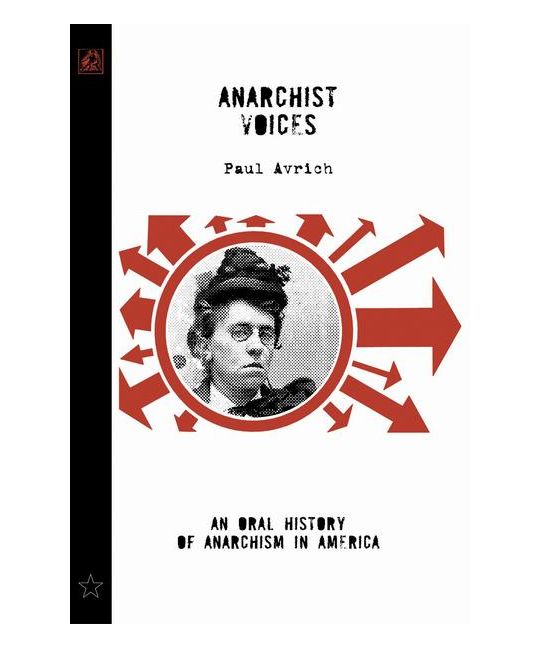Anarchist Voices: An Oral History of Anarchism in America
2 in stock
In Anarchist Voices, Avrich lets anarchists speak for themselves.
“The 180 interviewees in this oral history (mostly anarchists, but also their friends, associates, and relatives) represent diverse political tendencies—individualists, collectivists, pacifists, revolutionaries. What unites them is an optimistic faith that people will live in harmony once the impositions of government disappear. The respondents give firsthand recollections of Emma Goldman, Rudolf Rocker, Sacco and Vanzetti and other key anarchists; describe their experiences in libertarian schools and colonies; and offer trenchant observations on the dangers of authoritarian communism, bureaucracy and entrenched institutions. Among those interviewed are self-proclaimed ‘philosophical anarchist’ Roger Baldwin, founder of the American Civil Liberties Union; Daniel Guerin, historian of the U.S. labor movement; Alexandra Kropotkin, English-born daughter of Russian anarchist Peter Kropotkin; Albert Boni, publisher of ‘Modern Library’ classics and a socialist; and Dwight Macdonald, who launched the journal Politics in 1944. Avrich profiles a movement that continues to exercise an appeal with its calls for self-determination, direct grass-roots action and voluntary cooperation.” —Publishers Weekly
“Avrich is America’s leading authority on anarchist movements. Through his many books and articles he has shown that anarchism is a distinctive political tradition with deep roots in the American experience. Anarchist Voices draws on interviews with native and foreign-born anarchists that Avrich has been conducting over the past 30 years. Avrich’s absorbing collection makes a vital contribution to the history of the American left.” —Library Journal
“Avrich shows that anarchists were much more than black-caped figures with fizzing bombs, but at the same time he does not try to sanitize them. He makes it quite clear, for example, that Sacco and Vanzetti were disciples of Luigi Galleani, who favored bomb and dynamite attacks on capitalists, and that they were active members of terrorist conspiracies.” —The Times Literary Supplement
“[Avrich takes] a utilitarian approach to oral history as a kind of backup for missing archival sources…[and] achieves some wonderful results.” —Paul Buhle, The Nation
“This gracefully edited study should interest all students of American radicalism…” —Choice
The interviewees represented in this book were active between the 1880s and the 1930s and represent all schools of anarchism. Each of the six thematic sections begins with an explanatory essay, and each interview with a biographical note. Their stories provide a wealth of personal detail about such anarchist luminaries as Emma Goldman and Sacco and Vanzetti. This work of impeccable scholarship is an invaluable resource not only for scholars of anarchism but also for those studying immigration, ethnic politics, education, and labor history.
Paul Avrich is professor of History at Queens College and the Graduate School, the City University of New York.







